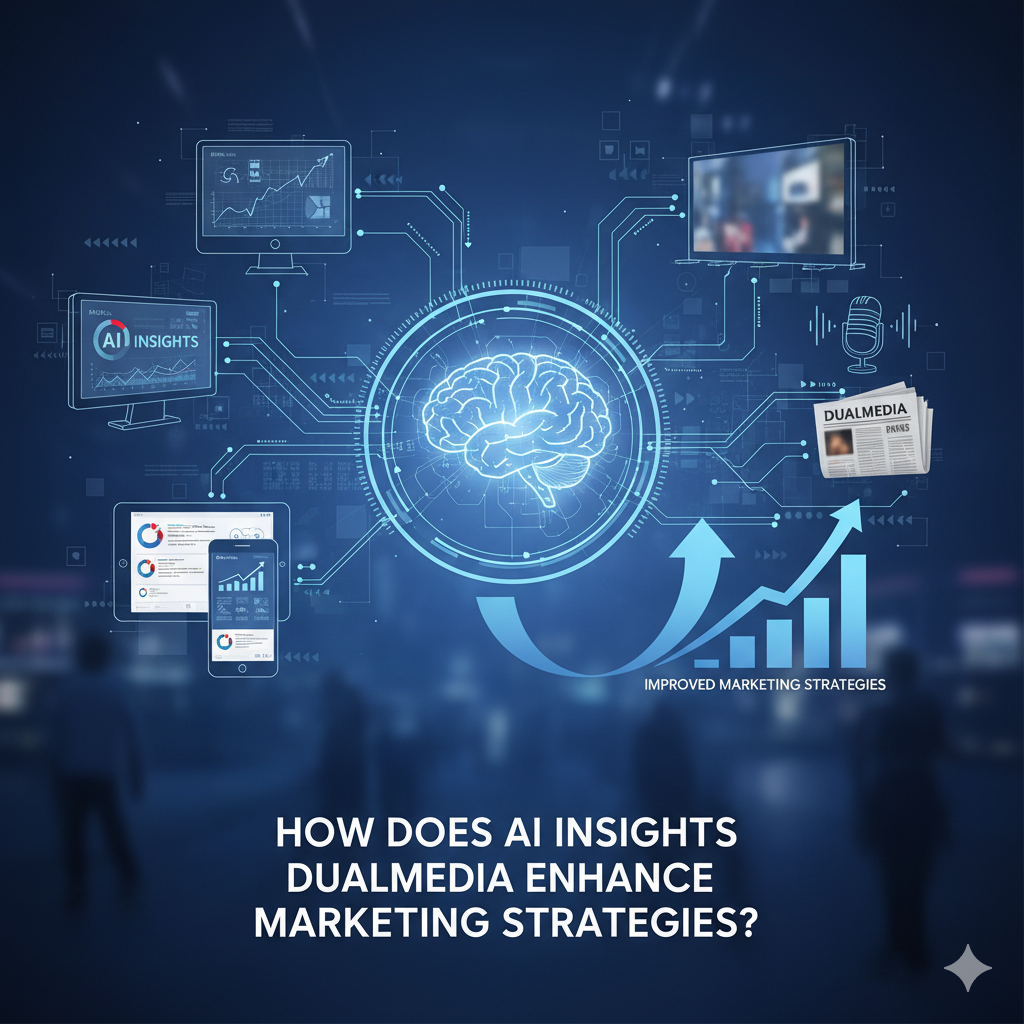AI insights refer to the valuable information businesses gain by analyzing vast amounts of data through artificial intelligence technologies like machine learning and natural language processing. These insights allow companies to understand customer behavior, predict future trends, and make smarter decisions.
In today’s competitive market, AI-powered marketing and data-driven decision making are transforming how businesses connect with customers and optimize their strategies. Platforms like AI Insights DualMedia combine digital and physical data to create personalized, real-time marketing experiences that drive growth and enhance customer engagement. Harnessing these AI insights is essential for staying ahead.
The Role of Machine Learning and Natural Language Processing in AI Insights
Machine learning (ML) helps businesses analyze large data sets to find patterns and make smart predictions, like customer segmentation and demand forecasting. Natural Language Processing (NLP) enables computers to understand human language, making chatbots and sentiment analysis possible.
Together, ML and NLP power AI insights platforms, turning complex data into clear, real-time marketing intelligence. This combo drives smarter campaigns and better decisions based on customer behavior and market trends, helping companies stay competitive and responsive.
Data Integration and Multichannel Insights
AI insights rely on collecting data from many sources—websites, social media, sensors, and customer interactions. This combination of digital and physical data gives a complete view of consumer behavior.
Automated tools like web scraping and surveys help gather diverse, high-quality data quickly. Processing both structured data (like databases) and unstructured data (like social media posts) ensures accurate analysis. Clean, integrated data is the foundation for effective real-time marketing and predictive AI insights, helping businesses stay ahead in ever-changing markets.
Also read: What Is the Direct Fairways Lawsuit and How Does It Affect Small Businesses
Advanced AI Applications in Marketing
AI revolutionizes marketing by enabling real-time campaign optimization, boosting ROI, and enhancing customer experience. It analyzes vast data instantly to adjust ad spend, targeting, and messaging based on current performance.
AI predicts future trends, allowing marketers to focus on high-value audiences and personalize content. Automated testing and dynamic adjustments reduce wasteful spending, ensuring every marketing dollar works harder. Brands like Amazon and HubSpot use AI for real-time retargeting and content refinement, creating more engaging, tailored experiences that increase conversions and loyalty.
Measuring Success and Future Trends
AI marketing is growing fast, with 88% of marketers using AI daily to boost efficiency and personalization. Future trends include hyper-personalization at scale, AI-powered content creation, and predictive analytics for smarter targeting.
AI will enable real-time campaign adjustments and better customer experiences. Privacy-friendly data use and ethical AI will build trust and loyalty. Businesses adopting AI-driven marketing strategies now are better positioned to win customers and stay competitive in 2025 and beyond.
Ethical Considerations and Data Privacy
While AI insights offer huge marketing benefits, ethical use and data privacy are vital. Companies must ensure transparency, fairness, and avoid bias in AI-driven decisions. Compliance with regulations like GDPR and CCPA protects customer data and builds trust.
Marketers should balance automation with human oversight to maintain brand integrity and respect privacy. Addressing these challenges proactively not only meets legal requirements but also strengthens customer loyalty and long-term success in AI-powered marketing strategies.
Success Stories and Market Impact
Leading brands show how AI insights transform marketing results. Sephora’s AI Beauty Advisor increased online sales by 30% with virtual try-ons, boosting customer confidence. Mastercard’s real-time social listening raised engagement by 43% and lowered ad costs.
HubSpot’s AI-powered intent-based email personalization lifted conversions by 82%. These examples prove AI marketing drives real growth, sharpens targeting, and enhances customer experiences, making it vital for businesses competing in 2025 and beyond.
Challenges in Implementing AI Insights
Implementing AI insights in marketing isn’t always easy. Around 42% of companies abandoned AI projects in 2025 due to technical problems, data quality issues, and a lack of skilled staff. Many face high costs and steep learning curves.
Privacy concerns and ethical use add complexity. Successful AI adoption requires clear strategies, staff training, clean data, and human oversight to balance automation with brand trust. Addressing these challenges early improves the chance of measurable business impact and long-term success.
Future Outlook for AI Insights
AI marketing will keep growing rapidly in 2025, reaching over $107 billion by 2028. Hyper-personalization at scale will become the norm, making campaigns smarter and more engaging.
AI-powered content creation and predictive analytics will help marketers anticipate customer needs better. Privacy-focused data use and ethical AI will build stronger trust. Businesses that embrace AI-driven marketing strategies now will gain a competitive edge and create deeper connections with their audience as the technology evolves.
FAQS: AI Insights DualMedia
What is AI Insights DualMedia and how does it work?
AI Insights DualMedia is an AI-powered marketing platform that integrates digital and physical customer data using machine learning and natural language processing to deliver real-time, personalized marketing insights.
How can AI insights improve marketing campaigns?
AI insights analyze customer behavior and market trends to enable hyper-personalization, predictive segmentation, and automated campaign optimization, resulting in improved targeting and higher ROI.
What types of data does AI Insights DualMedia use?
The platform uses a mix of digital data (web visits, emails, social media) and offline data (purchase history, in-store visits) for comprehensive customer analysis.
Are there privacy concerns with using AI for marketing insights?
Yes, ethical use and compliance with privacy laws like GDPR and CCPA are crucial. Transparency and data security help build customer trust.
What industries benefit most from AI insights?
Besides marketing, industries like finance, healthcare, government, and retail gain from AI-driven predictive analytics, customer personalization, and operational efficiency.
Conclusion
To succeed with AI insights in marketing, blend creativity with data-driven strategies. Use AI tools to automate routine tasks, personalize campaigns, and optimize performance. Train your team well and ensure clean data for best results.
Transparency with customers about AI use builds trust. Continuously test and refine your AI models based on real-world feedback. By combining human creativity with AI power, marketers can create engaging, efficient campaigns that stand out and deliver long-term business growth in 2025 and beyond.


